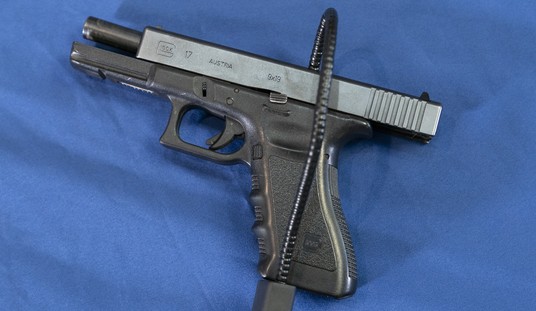It’s becoming increasingly evident that one of the main tactics of gun prohibitionists and opponents of the right to keep and bear arms in the post-Bruen legal environment is to simply delay court proceedings for as long as possible in an attempt to wait out the current makeup of the Supreme Court and hope that by the time these cases get to SCOTUS the current majority has been weakened or replaced by progressive justices who don’t believe the Second Amendment protects an individual right in the first place.
While gun control groups themselves can’t set court calendars, their anti-gun allies who responsible for defending these infringements can request delays in order to search for the historical evidence necessary to uphold the laws in question, as acting Attorney General Matthew Platkin recently did in several cases taking on New Jersey’s ban on “large capacity” magazines and “assault weapons.”
In a recent decision granting a motion by Platkin to consolidate discovery in three separate cases that seek to undo the state’s bans on commonly-owned arms, U.S. District Judge Peter Sheridan said that the move may actually speed up the litigation process, and warned the Attorney General that attempts to delay adjudication will fare poorly in his court.
Heeding Judge Matey’s dissent in the remand order, Judge Matey argued that not much has changed since the Heller case. ( ECF No. 109, pp. 3-4 of 9). District of Columbia v. Heller, 554 U.S. 570, 592 (2008). And the history of ten round magazines is presently known to track back to 1866 (ECF No. 109, p. 4 of 9). Judge Matey concludes that the development of the text, history and traditional evidence is unwarranted because “we should not wait for more of the same to lurch through litigation before turning to the task at hand.” (ECF No. 109, p. 4 of 9). To me, Judge Matey’s goal for expeditious resolution will occur more efficiently by taking several months to develop the historical evidence in the three cases so that it can be brought before the Third Circuit without any challenge from the Attorney General about the record being incomplete.
On the other hand, the Attorney General keeps moving the goalposts on the length of the delay necessary to develop the evidence and conduct discovery. My recollection is that in September, 2022, the Attorney General informally requested a few months; that timeframe grew to nine months in a submission in November, 2022; and now, there has been a rumor that he intends to ask for a year to complete discovery. (ECF No. 129). This simply cannot occur. Judge Matey is fearful that the proceedings may last another four years. (ECF No. 109, p. 9 of 9). If we adhere to the Attorney General’s moving timeline, Judge Matey may be correct.
It’s fairly unusual for a judge to cite rumors in an opinion, but Sheridan appears to be getting fed up with New Jersey’s attempt to avoid having to defend their gun and magazine bans under the test laid out by the Supreme Court in Bruen. Keep in mind, these cases have already stuck in the courts for almost five years already, and now Platkin wants to delay proceedings even further while he goes in search of historical analogues to the state’s ban on magazines over 10-rounds and all arms it designates as “assault weapons.” And these cases are currently in U.S District Court, which means whatever Sheridan decides the Third Circuit will have to weigh in once again, so it’s already going to be awhile before SCOTUS gets ahold of any of the three cases at issue, but the longer the wait the better for the gun prohibitionists.
The historical record may not be completely settled, but so far neither Platkin or other anti-gun AGs have been able to offer much of an argument in favor of the bans. California Attorney General Rob Bonta recently delivered a brief to U.S. District Judge Roger Benitez that lists more than 100 laws and ordinances dating back to the colonial era that he says are an analogue to the state’s “assault weapons” ban, but none of them actually demonstrate that complete prohibitions on commonly-owned arms were ever imposed until modern times. As Third Circuit judge Paul Matey wrote in his dissent to the court’s decision to send the New Jersey cases back to trial court instead of the Third Circuit simply applying the Bruen test of “text, history, and tradition” on its own, “Heller directed us to look backwards—not to new and novel claims of necessity by the government.”
Even a glance is sufficient here. Repeating firearms grew in use throughout the 18th century, when early technical advances paved the way to Samuel Colt’s famous rotating cylinder revolver. By 1866, rifles holding more than ten rounds of ammunition were widely available, with handguns holding more than ten rounds appearing in stores by 1935. Both quickly proved popular, and Americans came to hold tens of millions of magazines holding over ten rounds.
Despite this popularity, regulations on magazine capacity arrived slowly. A few accompanied the Prohibition Era, all except one later repealed. Slower still, New Jersey did not limit magazine capacity to fifteen rounds until 1990. Or reduce that number to ten until 2018. All showing, as we summarized the record of the District Court’s three-day hearing, “that millions of magazines are owned, often come factory standard[,] … are typically possessed by law-abiding citizens[,] … and there is no longstanding history” of magazine regulation. And all revealing “a long gap between the development and commercial distribution of magazines, on the one hand, and limiting regulations, on the other.” Facts found and the law settled, deciding this case is appropriate.
Delaying Supreme Court review of gun control laws that stand little chance of passing the test justices lined out in Bruen is a terrible legal strategy, but it’s probably the best option for anti-gunners given the current makeup of the Court. Sadly, there are far too many appellate courts who are willing to go along with these tactics, even if it means continuing to treat the Second Amendment as a second-class right in direct contradiction to the Supreme Court’s position. It looks like Judge Sheridan is bound and determined to resolve these cases fairly expeditiously, or at least not on Platkin’s preferred timeline. I just wish the same could be said for Sheridan’s colleagues on the Third Circuit.









